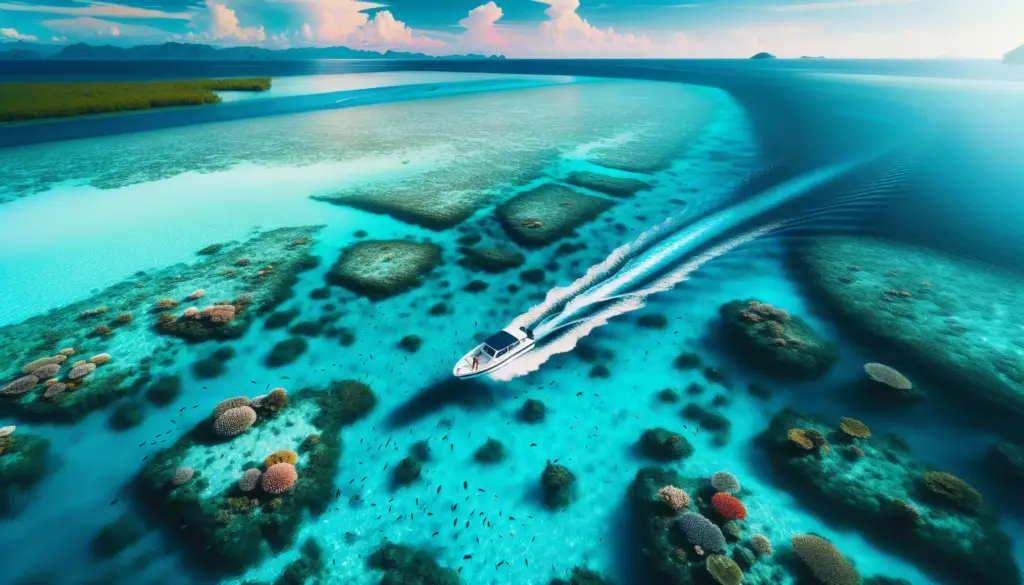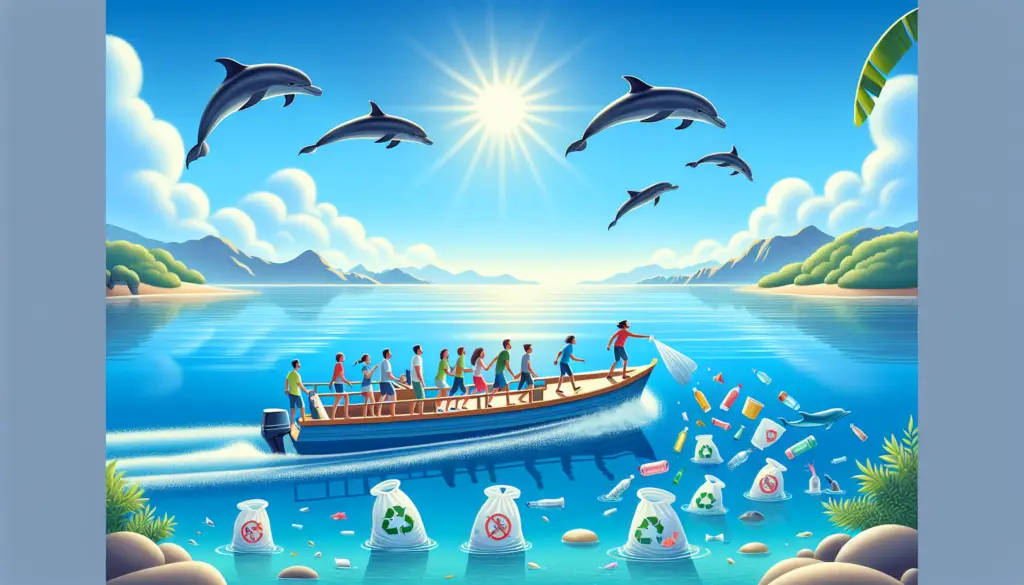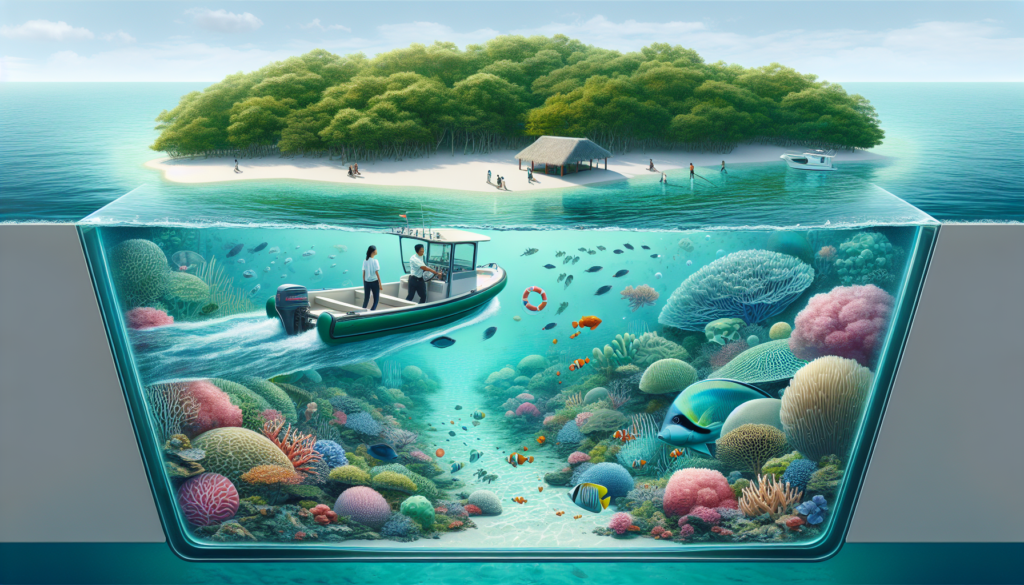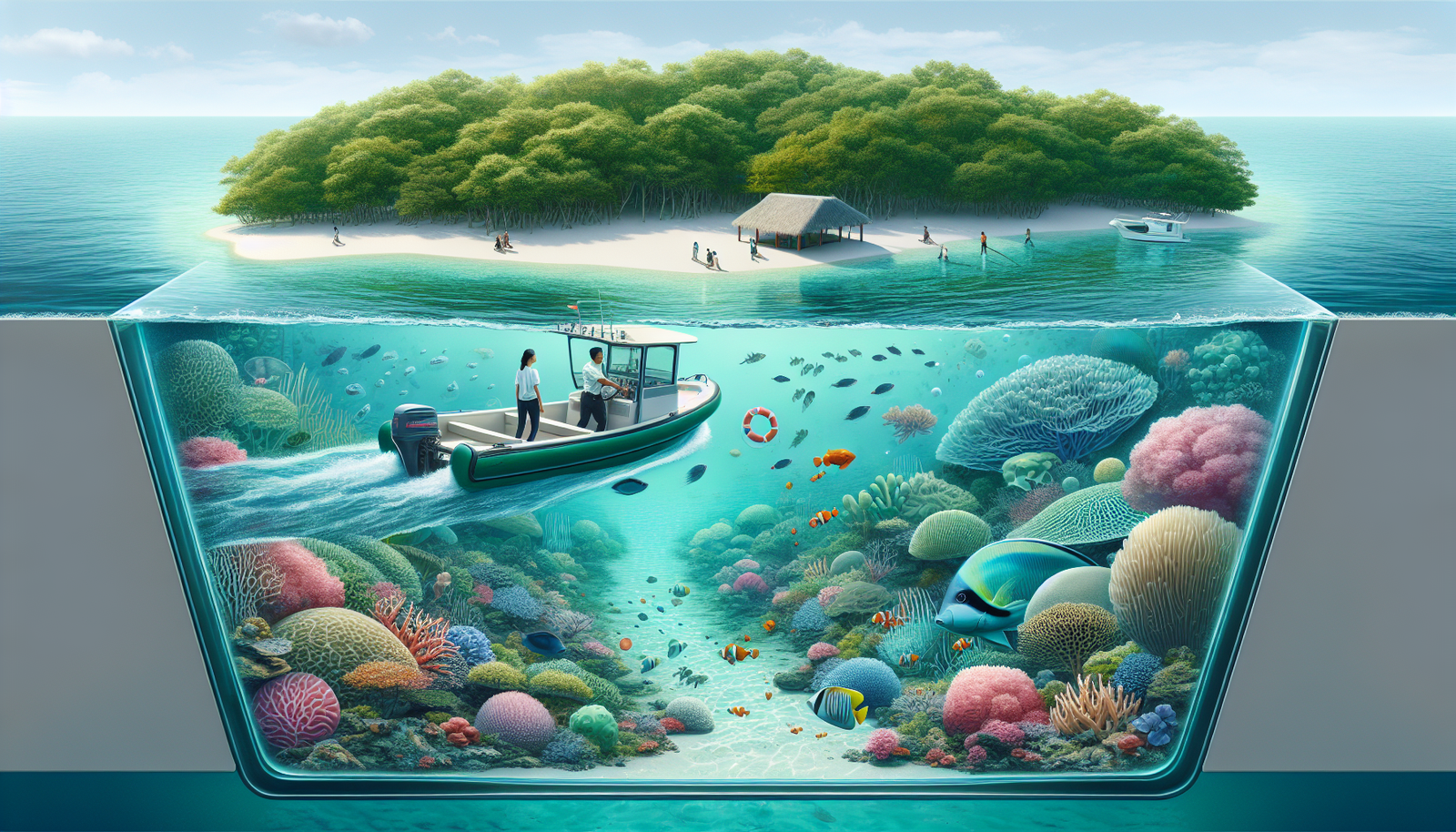You’re out there on the quiet, still water, a gentle breeze lifting your spirits as you maneuver your beautiful boat. But what about the environment? “Best Practices For Maintaining A clean boating environment” brings you insightful and practical tips on how to keep our oceans and lakes unpolluted while enjoying your favourite recreational activity. Balancing leisure with ecology, the article explores key strategies to maintain cleanliness, reduce your carbon footprint, and foster a healthier habitat for the aquatic species that call these waters home. Remember, it’s not just about your enjoyment – the environment matters too.

Understanding the Importance of a Clean Boating Environment
Before we dive into the best practices for maintaining a clean boating environment, let’s take a moment to understand why this matters so much. As a boat owner, user, or enthusiast, you play a crucial role in preserving the aquatic ecosystem.
The Impact of Pollution on Marine Life
Pollution wreaks havoc on marine life in more ways than one. When harmful substances such as oil, garbage, untreated sewage or even noise enter the marine environment, they interfere with the normal life cycle and behaviours of aquatic organisms. This, in turn, can cause declines in population, abnormalities in growth and development, and drastic shifts in the food chain.
Role in Preserving Ecosystems
By adopting clean boating practices, you help preserve fragile marine ecosystems. These actions ensure the survival of various species, some of which are already endangered due to human activities. At the same time, they also maintain the balance of the ecosystems upon which we too, depend for our survival.
Contributing to Sustainable Tourism
Clean boating is a major contributor to sustainable tourism. Beautiful, thriving marine environments attract tourists, bringing economic benefits to local communities. Preserving these environments ensures future generations will also have the opportunity to enjoy these natural wonders, allowing for a sustainable tourism industry that can continue to grow.
Identifying Pollution Sources in Boating
Understanding the different sources of pollution associated with boating is an essential step towards cleaning up our act.
Fuel and Oil Spills
Fuel and oil spills are one of the primary sources of pollution in the boating world. Spills can occur out of negligence or accidents, but their impact on marine life is devastating; they can poison marine organisms or coat them, hindering their natural functions.
Discharge of Sewage Water
The discharge of untreated or improperly treated sewage water is another major environmental concern. Sewage water contains pathogens and nutrients that can cause algal blooms leading to oxygen depletion in the water.
Accumulation of Trash
Trash from boats can accumulate in the ocean, leading to littered coastlines and water bodies. They pose choking and entanglement hazards for marine life and can sometimes contain toxic substances, which, when ingested, can poison aquatic animals.
Noise Pollution
noise pollution from boats can disrupt marine life, interfering with their communication, navigation, and feeding patterns. In extreme cases, it can lead to beaching events and death.

Eco-Safe Boating Equipment
Using eco-safe boating equipment is one of the most effective ways to reduce environmental footprints in the marine environment.
Selection of Environmental Friendly Engines
More modern, environmentally-friendly engines produce less pollution as they burn fuel more efficiently. These engines mean less oil and fuel finding its way into our oceans.
Use of Biodegradable Products on Board
When you must dispose of certain products at sea, select those that are biodegradable. These products break down naturally, reducing the impact on the environment.
Investing in Eco-Friendly Boat Cleaning Materials
Harsh cleaning materials can be harmful to the environment. There are ranges of non-toxic, biodegradable cleaning products available that can keep your boat looking great while minimizing environmental harm.
Proper Waste Management
Waste management is essential for a clean boating environment. It involves disposing of waste materials responsibly, reducing the amount of waste produced, and recycling whenever possible.
Effective Trash Disposal Strategies
Have designated areas or containers for waste on board. Ensure that all trash is properly secured so it doesn’t accidentally wind up in the water, and dispose of it properly once onshore.
The Dos and Don’ts of Sewage Disposal
Ensure your boat is equipped with an effective marine sanitation device. Always pump out at designated facilities. Never discharge sewage within three miles of the shore or in no-discharge zones.
Implementing Recycling Programs on Boat
Initiate recycling programs on your boat. Have separate receptacles for paper, plastic, and metal, and encourage everyone on board to use them.

Spill Prevention and Response
Preparation is key when it comes to preventing and responding to spills on your boat.
Importance of Regular Equipment Check
Regular equipment checks are crucial. Check your bilge for oil leaks and have it cleaned regularly. Also, inspect fuel systems and engines for any signs of potential leaks.
Quick Response to Unexpected Spills
In the case of an unexpected spill, a prompt response can save the day. Having a spill response kit onboard is essential – this should include oil absorbent pads, pillows, or booms.
Stocking Adequate Clean-Up Materials on Board
Your boat should always be stocked with adequate cleanup materials. This includes basic items like trash bags, recycling bins, and other necessary cleanup tools.
Decreasing Noise Pollution
Taking steps to reduce noise pollution can vastly improve the health of the marine ecosystem.
Understanding Noise Pollution in the Marine Environment
Boating noise pollution can alter the behaviours of marine creatures, even leading to physical injury in some cases. It’s essential to understand the impact your boat may have and take steps to reduce noise levels.
Utilizing Mufflers and Noise Reduction Systems
Equipping your boat with adequate mufflers and noise reduction systems can greatly reduce the noise projected into the water.
Minimizing Use of Loud Audio Equipment
Whenever possible, minimize the use of loud audio equipment while boating. This ensures you are not contributing unnecessarily to marine noise pollution.

Educating Passengers about Clean Boating
Education is a powerful tool in promoting a clean boating environment.
Sharing Responsibility with Boat Users
Brief your passengers and crew at the outset of your trip about the importance of clean boating and their role in it. Share policies about waste management, spill prevention, and noise regulations.
Crafting Informative Safety Briefings
Include environmental best practices in your safety briefings. Use these opportunities to educate others about the impact of their actions and contribution to a clean boating environment.
Encouraging Participation in Cleanup Activities
Involve everyone on board in cleanup activities. This could be after a meal on the boat or after a trip ashore. Encourage them to join in onshore clean-up activities as well.
Participating in Clean Boating Programs
Joining clean boating programs provides access to valuable information, resources, and like-minded boaters.
Joining Local and National Boating Organizations
Many boating organizations run clean boating programs. Joining these groups can provide access to resources, training, and community engagement opportunities.
Attending Workshops and Trainings
Workshops and training provide invaluable knowledge and practical skills that help you boat more responsibly.
Volunteering in Clean-Up Drives
Participate in clean-up drives organized by local boating groups or community organizations.
Complying with Boating Environmental Laws and Regulations
Knowledge of and compliance with boating environmental laws helps ensure a clean boating environment.
Studying Applicable Local, State, and Federal Laws
As a boat owner or operator, you must acquaint yourself with all local, state, and federal laws applicable to your boating activities.
Securing Necessary Permits
Ensure you have all the necessary permits for your boating activities. Some activities such as waste discharge, fueling, or modifications to your boat might require permits.
Understanding Consequences for Non-Compliance
Non-compliance with environmental laws not only harms the environment but can also lead to hefty penalties.
Continually Evolving Best Practices
Staying open to learning and adaptation ensures your clean boating practices evolve with advances in technology and research.
Keeping Abreast with Latest Research
Stay informed about the latest findings in marine environmental research. This will help you understand the evolving impact of boating on the environment and adapt your practices accordingly.
Adapting to New Technological Advances
Embrace new technologies that offer cleaner, more sustainable boating solutions. These could range from cleaner engines to more efficient waste management systems.
Soliciting Feedback from Staff and Passengers
Gather feedback from your staff and passengers. Their insights might offer you new perspectives and ideas on how to better your clean boating practices.
In conclusion, maintaining a clean boating environment is our shared responsibility. It requires ongoing effort, education, and a conscious desire to minimize our impact on marine ecosystems. By implementing and continually improving upon these best practices, you’re playing an important part in the preservation of our aquatic environment for generations to come.


[…] paradise what you live for? Yet the vitality of this environment lies in your hands, too. “Best Practices For Maintaining A Clean Boating Environment” asserts your role in preserving this blissful boating aura, empowering you with knowledge of […]